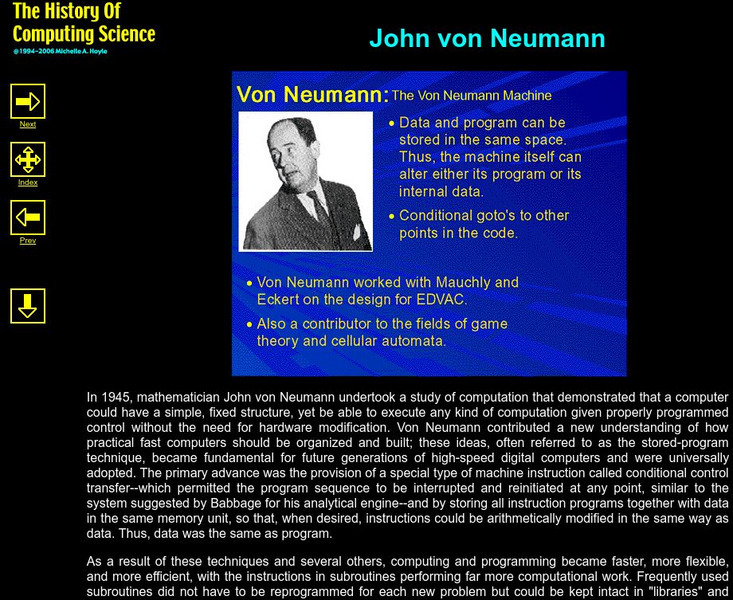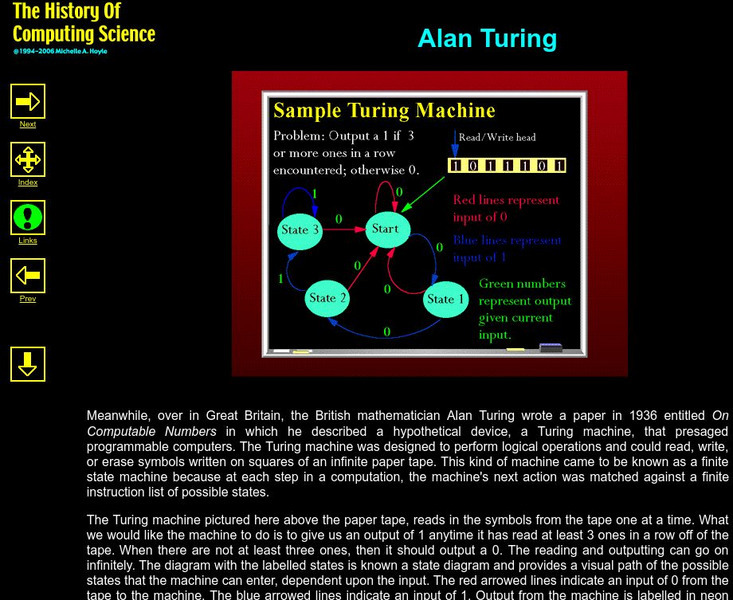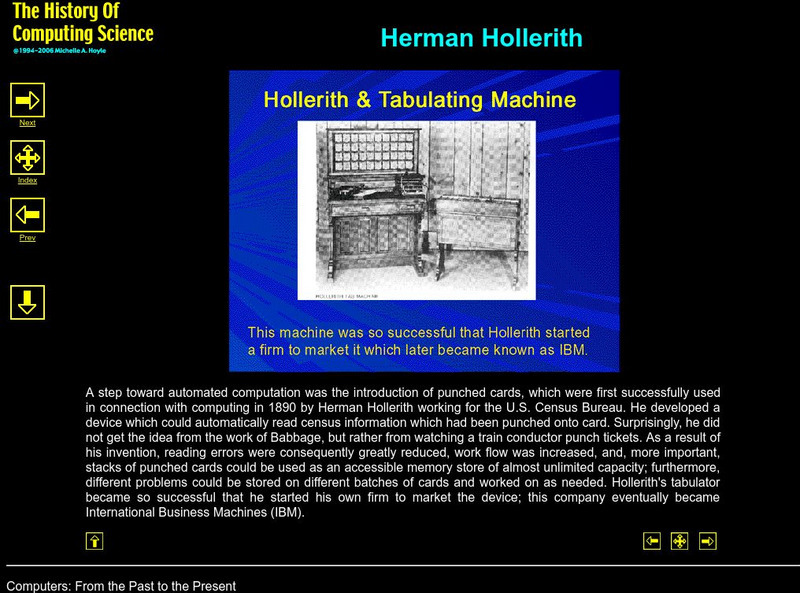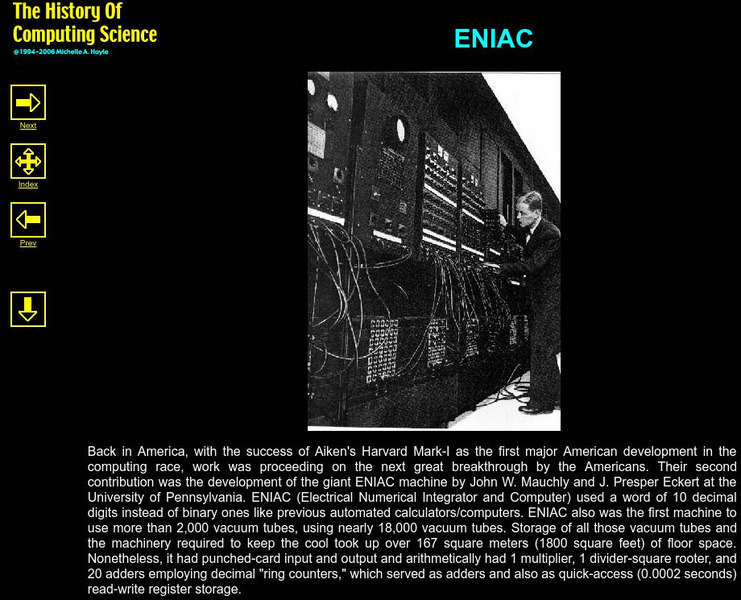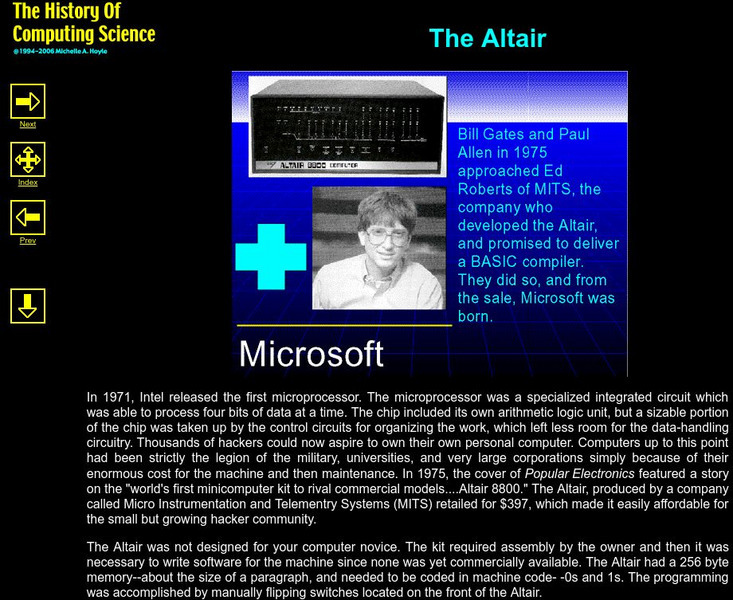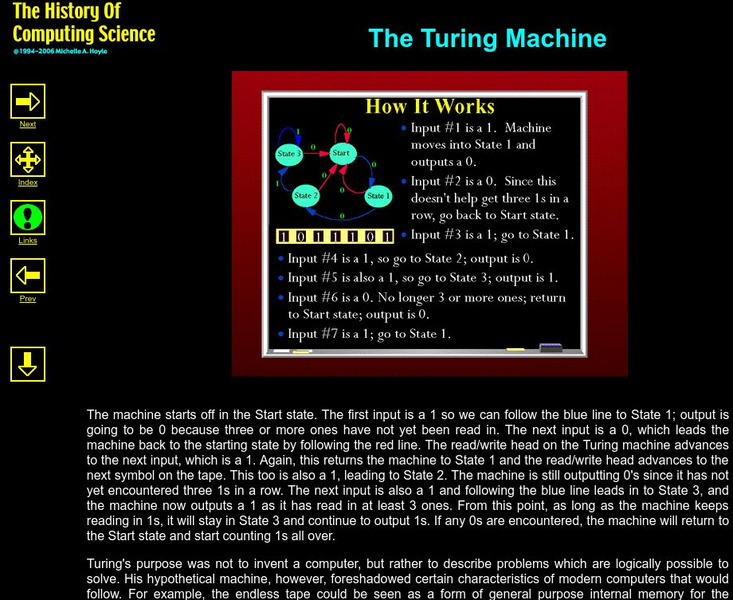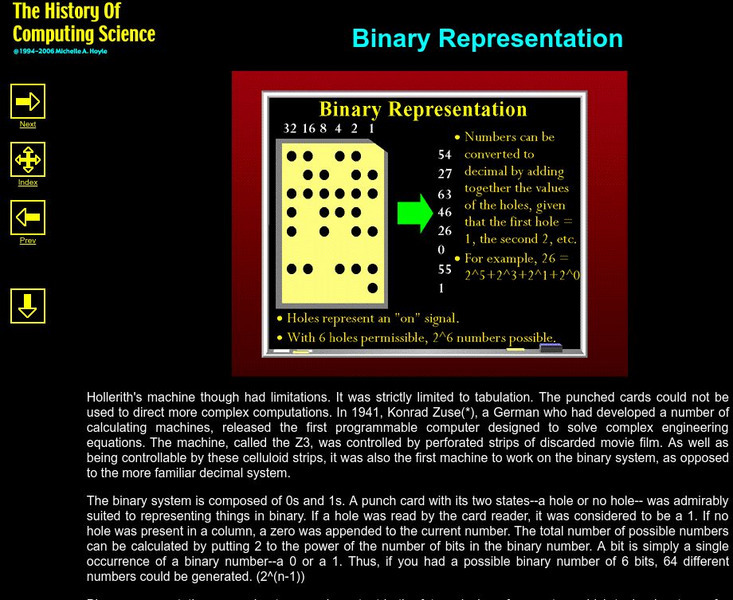History of Computing Science
History of Computing Science: Technology Advances
The transistor and the integrated circuit were two inventions that fueled the technology explosion. This lecture presents a brief discussion of these two inventions.
History of Computing Science
History of Computing Science: Harvard Mark I
The Harvard Mark I computer was the first large-scale automatic digital computer in the USA. This lecture provides a brief description of the Harvard Mark I computer.
American Museum of Natural History
American Museum of Natural History: Carl Sagan and the Quest for Life in the Universe
A brief biography of American astronomer and science advocate Carl Sagan.
History of Computing Science
History of Computing Science: John Von Neumann
John von Neumann was a brilliant mathematician. His work impacted several fields of study. This lecture series provides a brief description of his life and contribution to computer science.
History of Computing Science
History of Computing Science: Alan Turing
Alan Turing is sometimes referred to as the father of modern computer science. This lecture series provides a brief description of his well-known contribution, the Turing Machine.
History of Computing Science
History of Computing Science: The First Mechanical Calculator
The Pascaline was the first mechanical adding machine and was developed by Blaise Pascal. This lecture series presents a brief description of the history of the machine and how it worked.
History of Computing Science
History of Computing Science: The Difference Engine
The difference engine was never built, but its design was an important step in the history of computing devices. This lecture series presents a brief description of this early mechanical computing device.
History of Computing Science
History of Computing Science: Herman Hollerith
Herman Hollerith holds a prominent place on the timeline of computer history. This lecture series presents a brief description of Hollerith's tabulating machine and the impact it eventually had on the computing world.
History of Computing Science
History of Computing Science: Edvac
EDVAC (Electronic Discrete Variable Automatic Computer) was an early computer that was one of the first to use the binary number system to represent information. This lecture is a brief presentation of the EDVAC.
History of Computing Science
History of Computing Science: Eniac
The ENIAC (Electrical Numerical Integrator and Computer)was a large computer based on vacuum tubes and introduced in 1946. This lecture gives a brief presentation of the ENIAC.
History of Computing Science
History of Computing Science: Basic & Other Languages
There are many computer programming languages in use today. This lecture series presents a brief description of the progression of programming languages.
History of Computing Science
History of Computing Science: The Altair
The Altair 8800 was the first personal computer. This lecture series gives a brief description of the Altair 8800 and the impact it had on the computer industry.
History of Computing Science
History of Computing Science: A Primitive Calculator
The abacus is an ancient calculating tool. This lecture series presents a brief description of the abacus and its use.
History of Computing Science
History of Computing Science: The Turing Machine
A Turing Machine is not an actual machine, but rather a symbolic system that can be used to represent any algorithm used to solve a problem. This lecture series gives a very brief description of the Turing Machine.
History of Computing Science
History of Computing Science: Binary Representation
The binary number system is a perfect fit for the dual-state technologies used in digital computing devices. This lecture series presents a brief description of how the two fit together.



